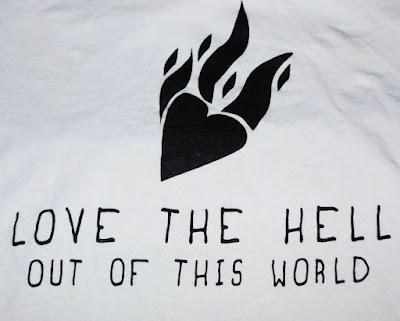“Love the hell out of this world” — a further lesson to be learnt from the Russian invasion of the Ukraine
A short “thought for the day” offered to the Cambridge Unitarian Church as part of the Sunday Service of Mindful Meditation
(Click on this link to hear a recorded version of the following piece)
—o0o—
I begin by reading the poem “Past and Present” by the Slovenian poet, Boris A. Novak.
Only the future stays the same.
No one’s. It’s blank and strange,
mysterious, an empty chamber.
Whose portrait is this? Whose steps are these?
Amidst the leaves, whose names on graves?
After the leaves fall, rulers rend memories,
to brush them away.
shaded in by memory’s brush,
It can’t be rearranged.
Completely mine and fresh,
it closes overhead, an empty chamber.
—o0o—
Novak’s poem seems to me to be saying something very, very important about how the world is, something that we nearly always fail to see. And, because we fail to see it, we also fail to see on what basis we may always genuinely hope for a better world to come even as the possibility for a far worse world to come remains equally real.
The basic thing we need to see is stated in Novak’s first two lines:
Only the future stays the same.
We have been taught it is the past that stays the same, but Novak recognises this quality only belongs to the future. He sees with rare clarity that the future really is
mysterious, an empty chamber.
The past, on the other hand, is everyone’s, and it’s always been the site of constantly changing and conflicting reassessments, reinterpretations and putative rediscoveries of the “true” past.
Just think now of Putin. As the former official at the U.S. National Security Council specialising in Russian and European affairs, Fiona Hill, put it just last week, she feels that “Putin’s been down in the archives of the Kremlin during Covid looking through old maps and treaties and all the different borders that Russia has had over the centuries” and, to continue with Novak’s lines, it seems to me that whilst Putin has been “down there” he’s been wondering about things like:
Amidst the leaves, whose names on graves?
On returning from the archives Putin has clearly decided he must redouble his efforts violently to brush away the fallen leaves and continue to promote what he thinks is “Novorossiya”, his imagined “New Russia” of the pre-Soviet era which reveals what he believes are true “Novorossiya/n” portraits of the past, portraits bearing true “Novorossiya/n” names, portraits and graves of people who took true “Novorossiya/n” steps.
As Novak says:
to brush them away.
Putin is today rending memories in a phenomenally deceitful and destructive fashion by violently brushing away everything that doesn’t fit perfectly with his own reassessments and reinterpretations.
However, lest we dangerously and hubristically deceive ourselves, it’s vital to realise that, to a greater or lesser extent, and whether as individuals or nations, we all do this kind of thing on a daily basis because that is how human beings have always lived and worked with their past to make their present.
Novak sees that in all cases, whether in honest or deceitful, constructive or destructive ways:
shaded in by memory’s brush,
But, as Novak then immediately makes clear:
It can’t be rearranged.
Completely mine and fresh,
it closes overhead, an empty chamber.
The message of hope we need to hear clearly in these very dark days is this truth, that the future is no one’s. It always-already remains an empty chamber, blank, strange and mysterious.
Even if Putin were to “win” this conflict — whatever “win” means in this context — the future would still not be his. A better world than the one Putin offers is always possible. But, but, but we must remember that the future is not ours either — it really is no one’s. All we ever have to work with is the past and the present.
As Jesus once wisely advised, we must not, nor indeed can, worry about tomorrow, for tomorrow will worry about itself and that, therefore, the task is always and only to strive first for the kingdom of God and God’s righteousness (Matthew 6:33). Which, being colloquially interpreted, is simply to heed the call “to love the hell out of this world” in each and every one of our acts.



Comments